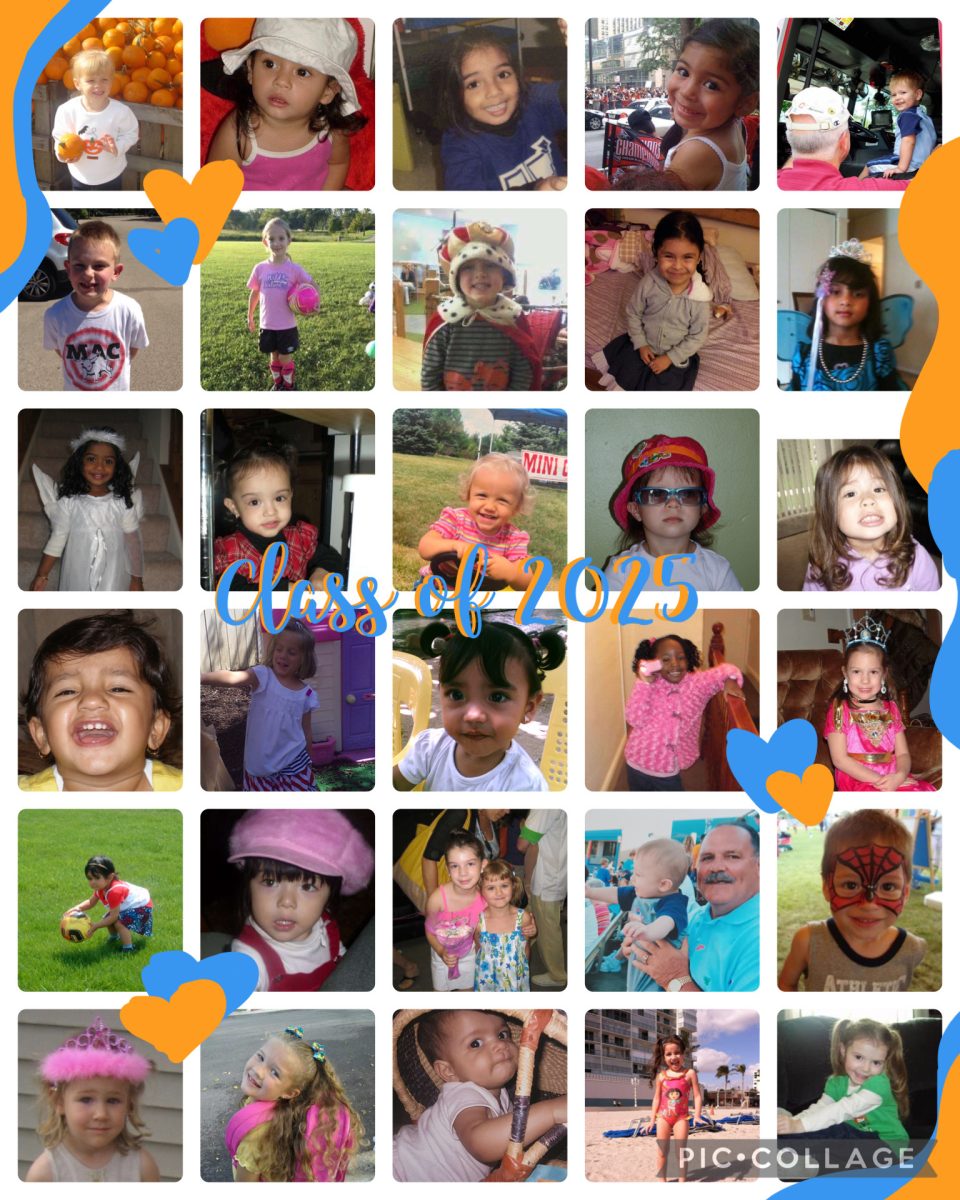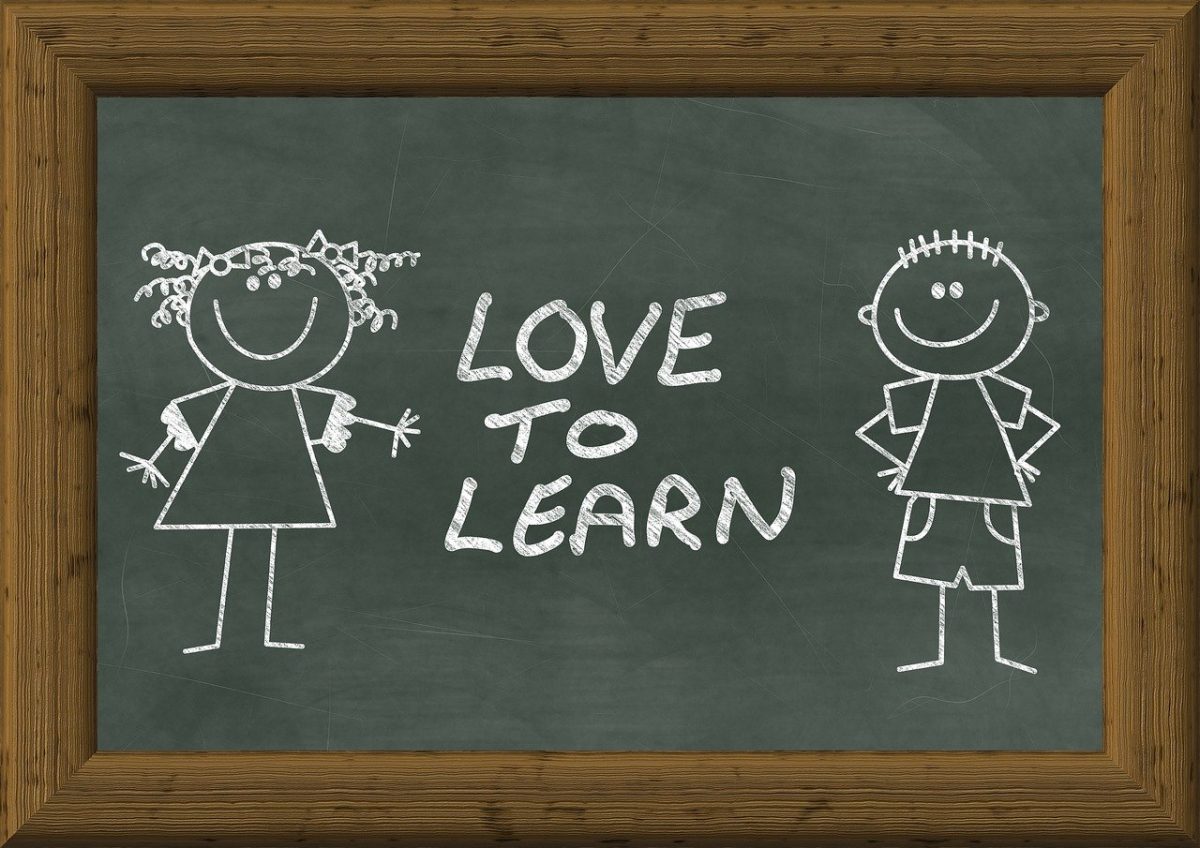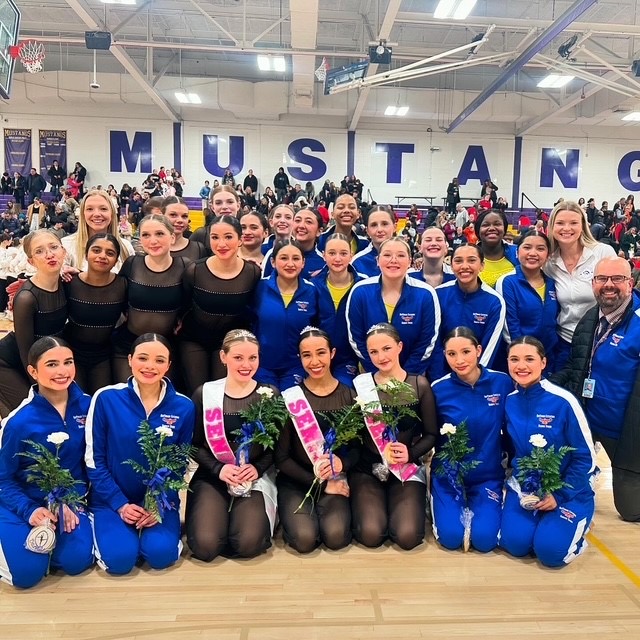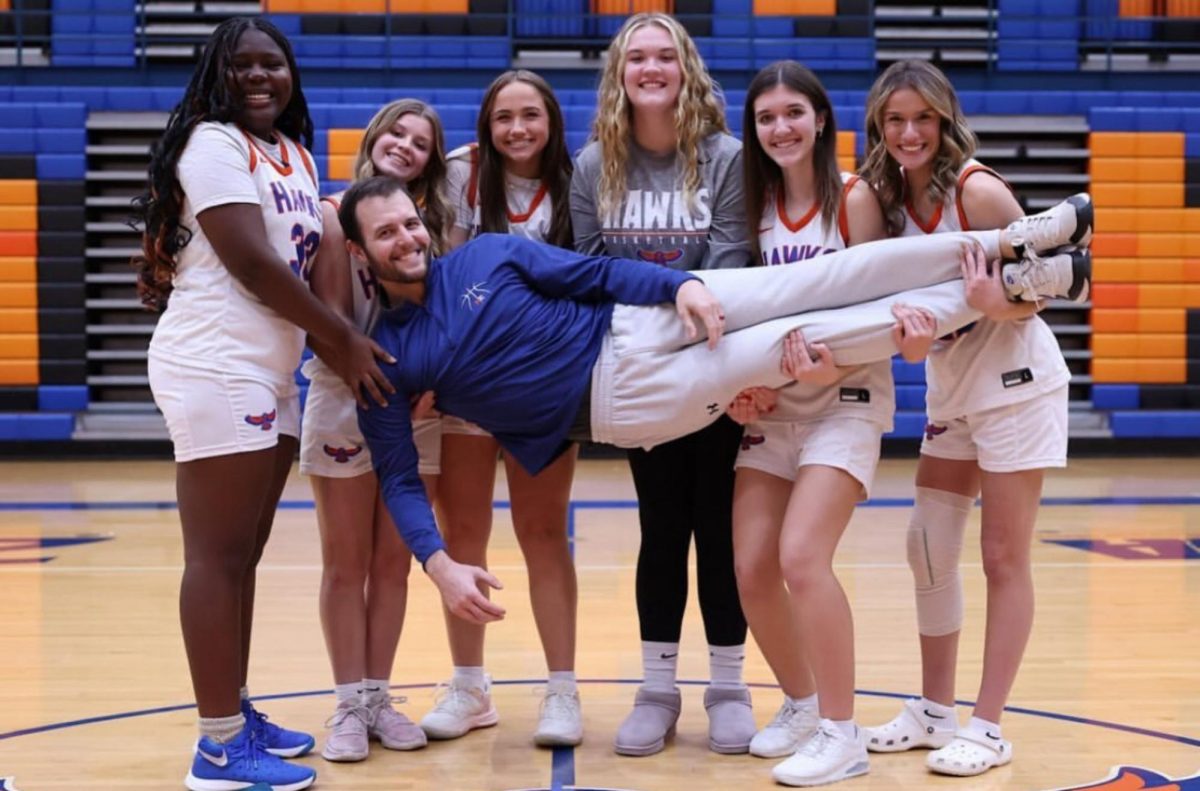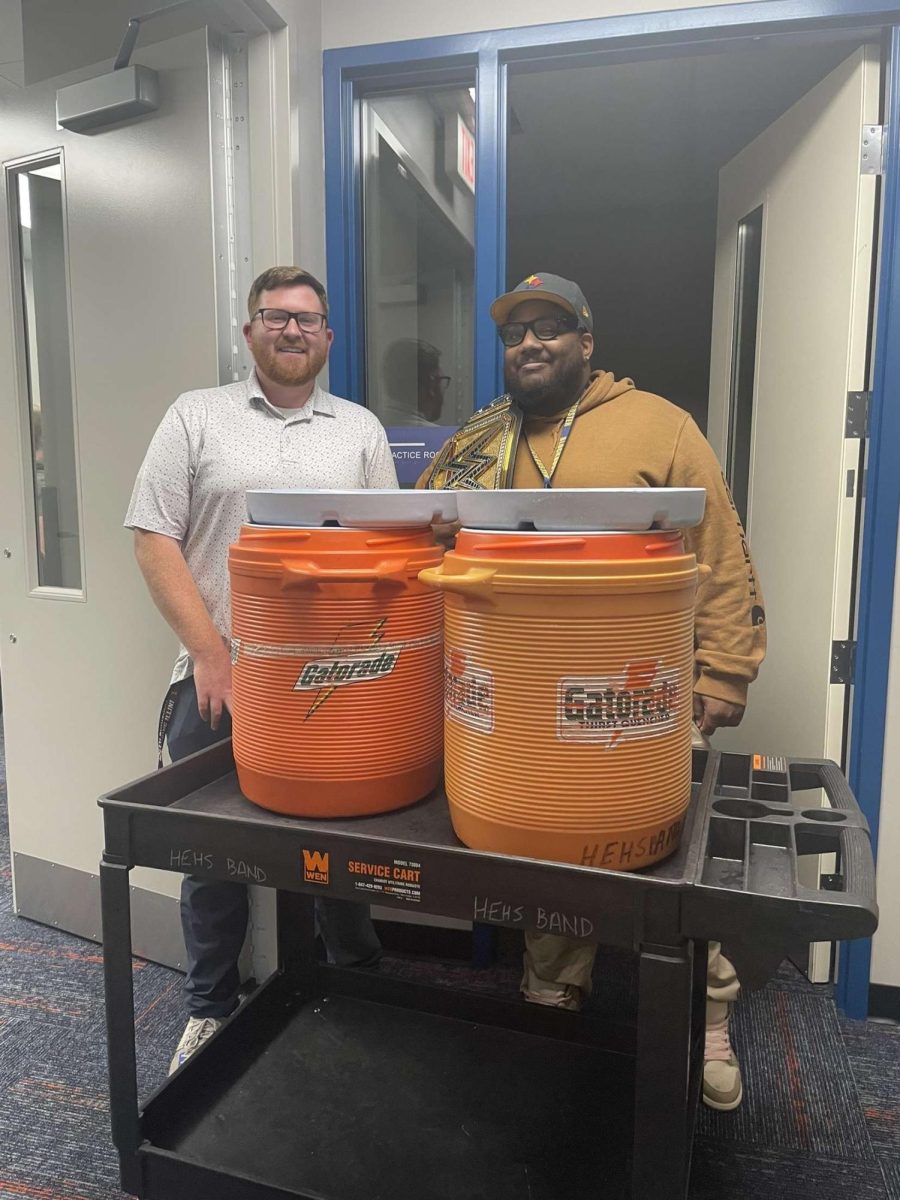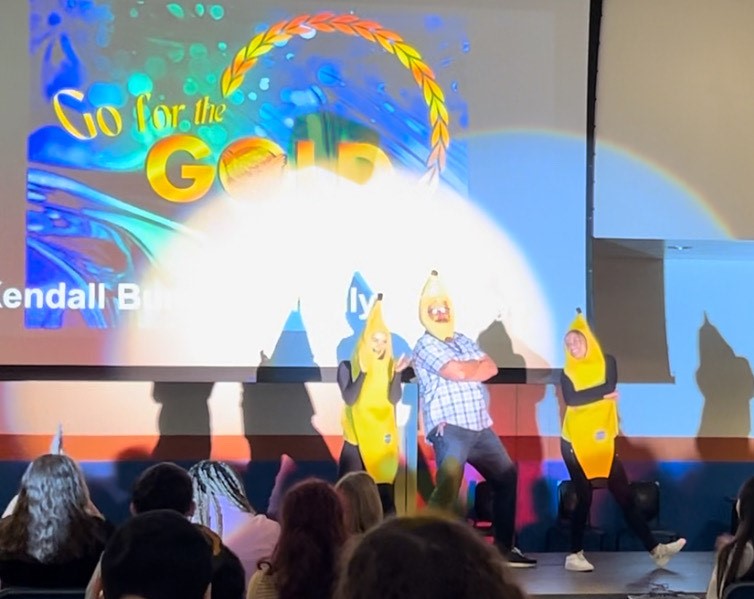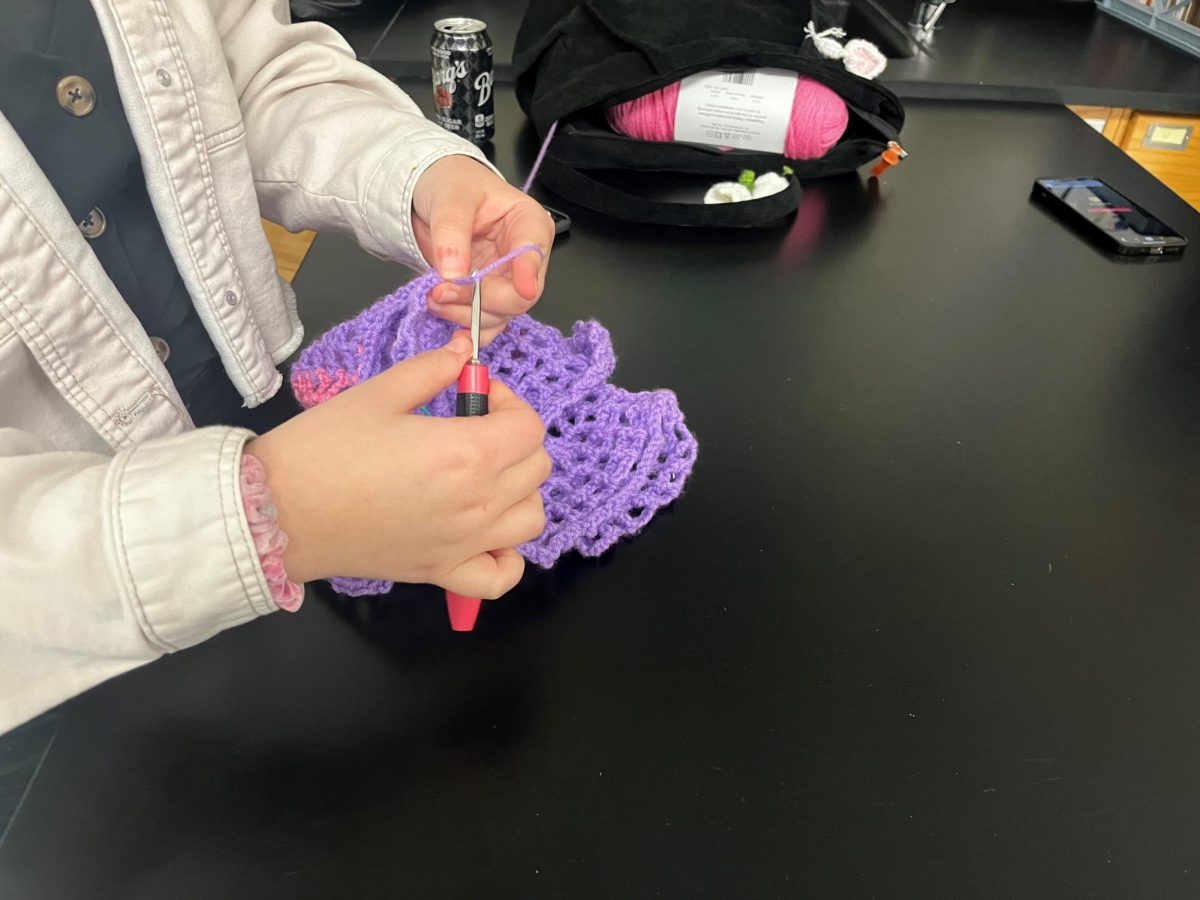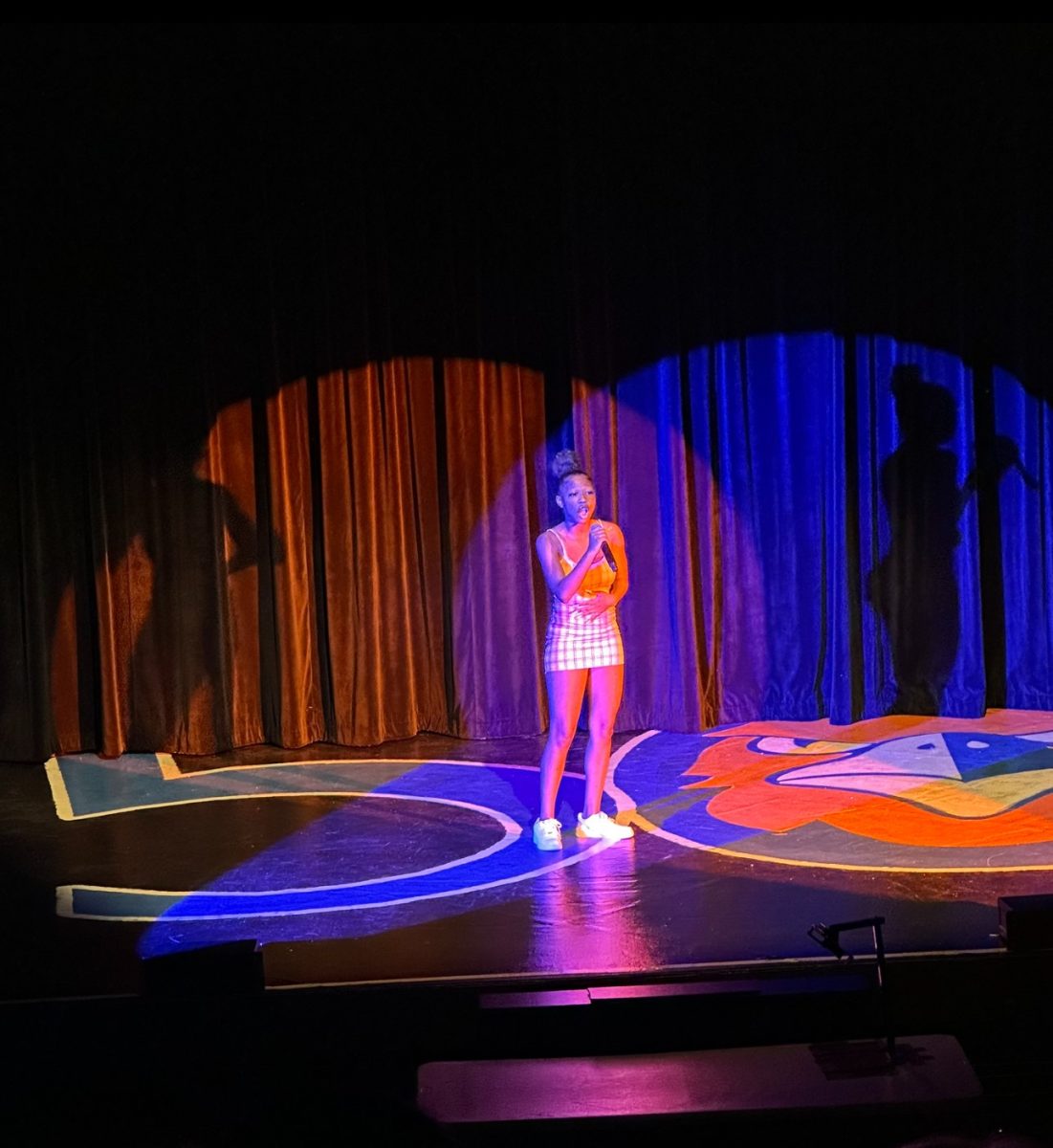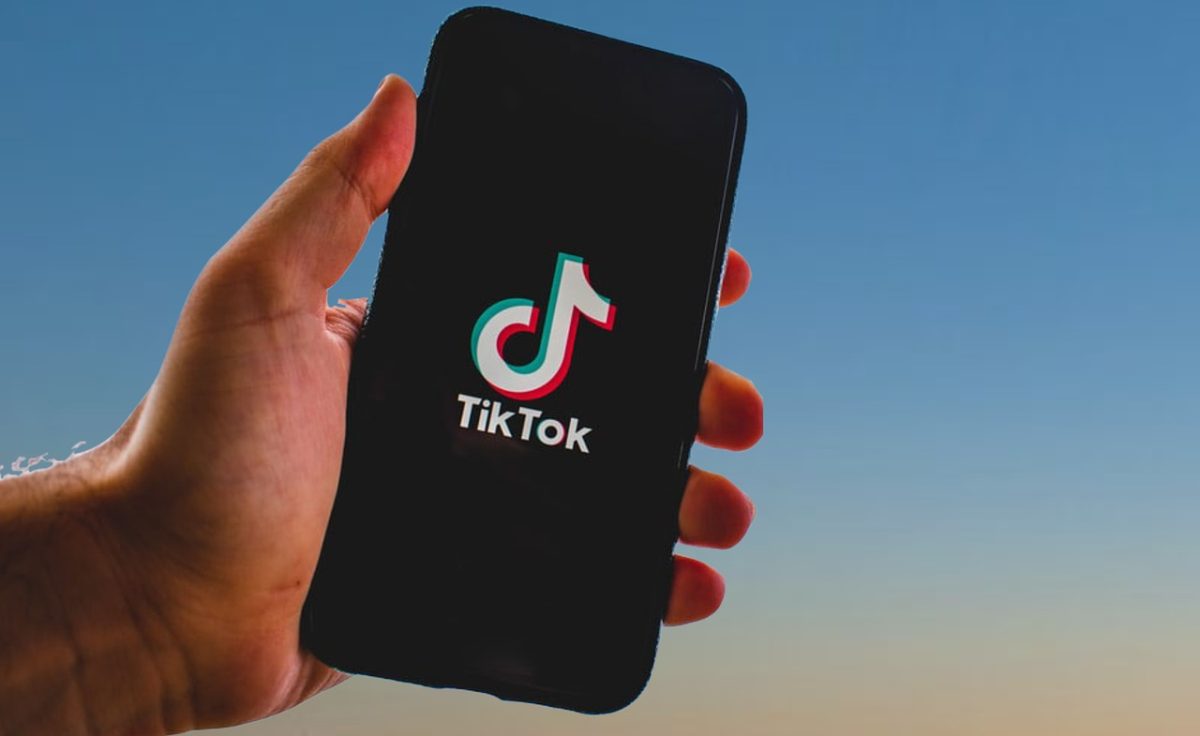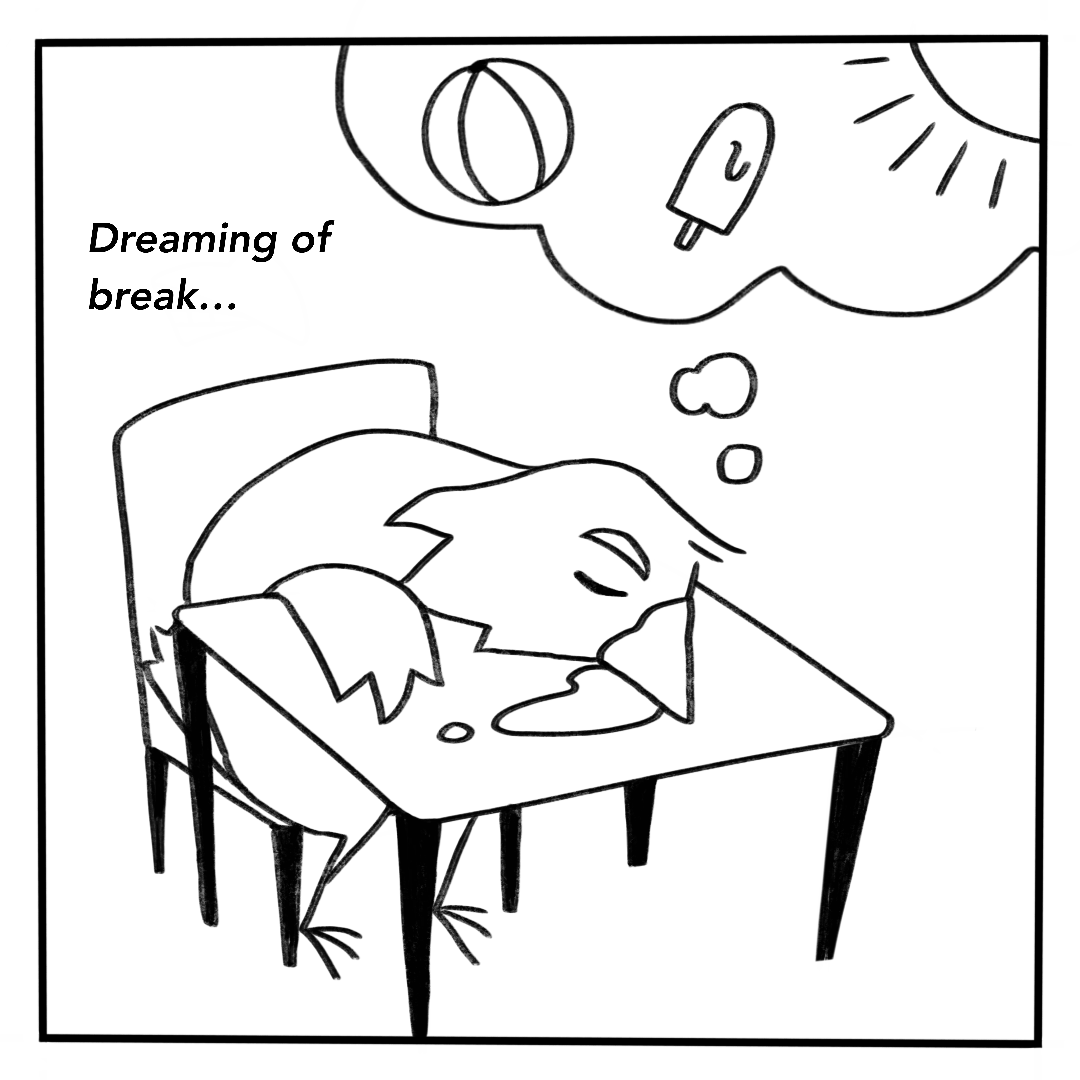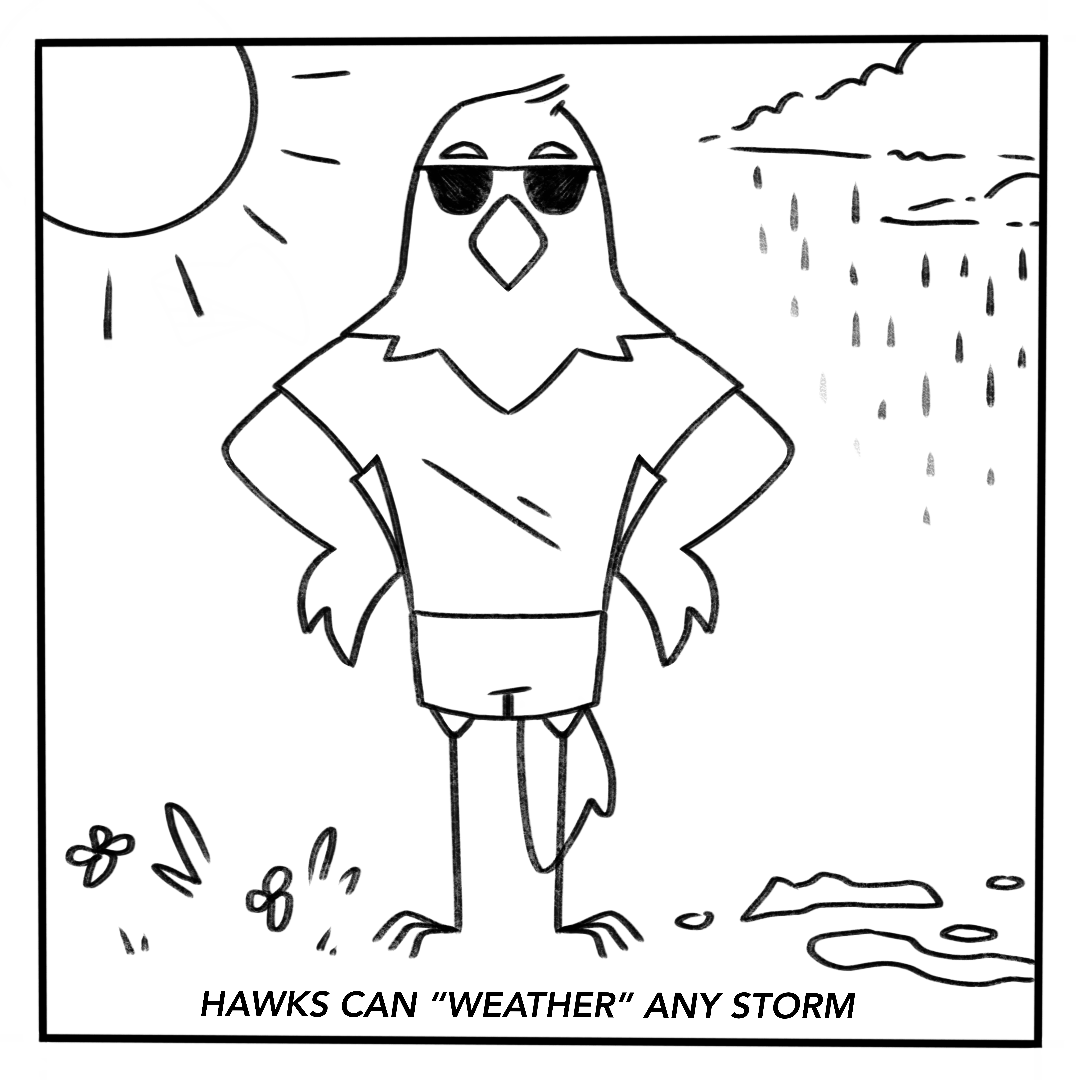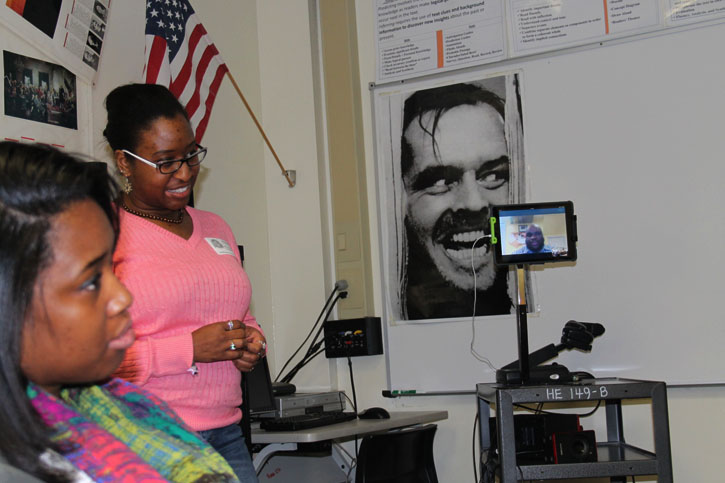Police officer and journalist answer current students’ questions about race, crime, and law enforcement
Alexandria Griffin, an HEHS graduate and a police officer, and Evan F. Moore, an HEHS graduate and a journalist, answer English 108 students’ questions. Griffin visited the class while Moore answered questions via Skype.
February 20, 2015
Recently, Mrs. Kirsten Coakley’s English 108 classes gained some valuable insight about race, crime, and law enforcement from a professional journalist and police officer.
The class had been reading Harper Lee’s To Kill a Mockingbird and had generated a number of complex questions to which Coakley wanted to find answers. Some of the questions involved the recent Michael Brown and Eric Garner cases. The students were interested in finding out more than what the news provides. Questions included the following: Why was Michael Brown shot eight times? Aren’t police trained in dealing with these threats? Why are we always hearing about white police attacking the black populace?
To give the students a better understanding of these events, Coakley brought in former HEHS Student Alexandria Griffin, a police officer, and Evan F. Moore, a journalist. The following are some of the insights the students gained after sharing their questions with these professionals.
Q: HEHS Student – How do you stay neutral when you write?
A: Moore – You have to pay attention to what is fact and what is opinion.
Q: HEHS Student – Are you trained in dealing with these threats?
A: Officer Griffin – In reference to the incidents in Ferguson and the like, even though an officer goes through rigorious training, one is never truly trained until you are out in the field. As far as shooting goes, you can train on paper targets; however, the real world scenarios are nothing like paper targets.
Q: HEHS Student – How does an officer decide when a weapon is needed, and what kind of weapon?
A: Officer Griffin – Again, you can’t really tell until you are in the situation. Say it’s a traffic stop. I am not going to walk up to the person with my gun drawn. I’ll come up to the vehicle and have a conversation. If the person starts moving around in the vehicle or starts reaching for something that I might not be able to see, I would then reach for my taser or my gun. Say the person begins to exit the vehicle and in my mind there is no reason for that person to exit the vehicle, I will be at a heightened awareness.
Q: HEHS Student – Michael Brown actually reached for the gun. Wouldn’t it be more logical to incapacitate him while he left himself vulnerable?
A: Officer Griffin – Unfortunately, at the time, it wasn’t about what someone may have deemed the smartest choice. I am sure at that moment it was about survival. Remember they are both human, and humans are not perfect. People have focused too much on the fact that someone of this race killed someone of that race. The real problem is that there was a loss of life; it was a loss of life that was due to one’s actions. That person chose to act in a certain manner, and his actions led to his death. Their was a loss of life, regardless of what the race was, and the lives and families of all involved suffer.
Q: HEHS Student – We hear about all these high-crime areas. How do these areas get so dangerous?
A: Officer Griffin – In my opinion, its about education. Sometimes, the people in the high crime areas haven’t gotten the opportunity to interact with people outside of their immediate area. Sometimes they lack education, and they don’t know how to deal intelligently with differrent circumstances. For instance, if someone looks at them the wrong way, they may lash out violently because they’ve never learned how to talk through conflict. Also, they may believe they’ll never amount to anything, because of something society has said and, therefore, just don’t care.
A: Moore – I agree. People don’t realize that when you close a school you take away an opportunity to learn, for children to interact with each other and teachers. People who live in these places don’t have the same opportunity as you kids have.
Q: HEHS Student – Reports say that Michael Brown was shot 8 times. Aren’t 8 shots a bit excessive.
A: Officer Griffin – It takes time for the brain to process events. It takes time to realize then react to a threat. Say an officer is asked how many times he or she shot their weapon. They say four when the investigation is conducted, but then it may be proven the officer actually shot 10 times; again, it takes the brain time to realize there is a threat, and then to act on said threat. For instance, if someone were to walk into this classroom with a gun right now, it’s going to take a few seconds for any of us to realize the person has a gun in his or her hands. It would take time for an officer to draw his or her gun and shoot that gun. In that moment, because things are happening so fast, when shots are fired, even after the person is down, it’s going to take a few moments to realize the person is down. The officer lastly remembers seeing the person standing, still posing a threat.
Q: HEHS Student – Have you ever second-guessed your job choice because of all the hate?
A: Officer Griffin – No, I love coming in to work. It’s different every day. It does get stressful because you never know what you’re going to encounter. One minute you are responding to a paramedic call, and you get additional information that you’re responding to assist the paramedics with a person who was shot; and additionally you could receive information that the offender is still on the scene.
A: Moore – No, I have always been a good writer. I feel content with my work. These days, I’m doing alright, and the skies the limit.
Q: HEHS Student – Why do you believe so many people are lashing out at police over the Brown and Garner trials?A: Officer Griffin – Lack of education and people not realizing that police officers are human
Q: HEHS Student – How far are police officers allowed to go to prevent criminal activity before it is considered inhumane, unconstitutional, or just plain rude?
A: Officer Griffin – It depends. We, as police officers have to follow the law. We can’t just go up to someone, grab them and say, you’re coming with me. We have to be able to give reason as to why we are taking them into custody.

